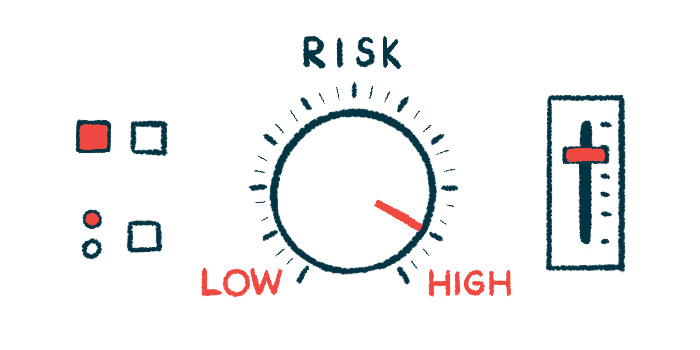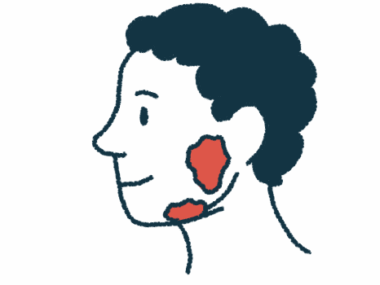Cancer risk doubled in endogenous Cushing’s post-diagnosis: Study
Patients found twice as likely to develop cancers within 10 years
Written by |

People with endogenous Cushing’s syndrome face a higher risk of cancer compared with the general population, and are twice as likely to develop cancers within 10 years of their diagnosis, according to a new study from Israel.
Being 60 or older, male, or having adrenal Cushing’s — a form of the condition in which cortisol overproduction is driven by a problem within the adrenal glands — were all identified as key predictors of cancer in these patients.
“Our study is the first to identify predictors of new cancer diagnosis in patients with [Cushing’s],” the researchers wrote.
While more work is still needed, the team noted that their findings highlight the importance of cancer screenings post-diagnosis for people with Cushing’s, especially for patients who may be at higher risk.
The study, “Predictors of cancer in patients with endogenous Cushing’s syndrome”, was published in the journal Endocrine-Related Cancer.
Endogenous Cushing’s syndrome arises when the body produces excessive amounts of cortisol, a hormone released by the adrenal glands located atop the kidneys. While this hormone is essential to manage stress, prolonged exposure to high cortisol levels can lead to a wide range of symptoms and complications, including weight gain, skin changes, high blood pressure, and diabetes.
The most common cause is a tumor in the brain’s pituitary gland that produces too much adrenocorticotropic hormone (ACTH), overstimulating the adrenal glands to produce cortisol — a condition known as Cushing’s disease. Excess ACTH can also come from tumors found elsewhere in the body, resulting in ectopic Cushing’s. In adrenal Cushing’s, cortisol overproduction is driven by problems within the adrenal glands themselves, most often a tumor.
“Patients with [Cushing’s] have higher morbidity and mortality, and it has been recently established that [Cushing’s] is associated with an increased cancer risk,” the researchers wrote. “However, predictors of a new cancer diagnosis have not been studied.”
Retrospectively analyzing cancer risk factors in Cushing’s
To address this gap in knowledge, a research team retrospectively analyzed data from 609 patients in Israel who were diagnosed with endogenous Cushing’s between 2000 and 2023. The team used the Clalit Health Services (CHS) database, a nationwide health registry.
Among the patients, 251 had Cushing’s disease, 200 had adrenal Cushing’s, and 158 had Cushing’s of unknown origin. The mean age at diagnosis was 48, and about two-thirds of the patients (65%) were women. People with ectopic Cushing’s or adrenal cancer were excluded from the study.
A control group of 3,018 individuals without Cushing’s was also included so that for each person with the condition, there were five similar individuals matched by age, sex, income level, and body fat content.
Follow-up for both patients and their matched controls began at the time of the Cushing’s diagnosis and continued until death, loss to follow-up, or the end of the study.
At the study’s start, conditions like high blood pressure, diabetes, osteoporosis, dyslipidemia, or abnormal blood fat levels in the blood, and heart disease were more common in the Cushing’s group than in the control group. A prior history of cancer was also more frequently observed in people with Cushing’s.
In the 10 years following their diagnosis, 13.3% of people with endogenous Cushing’s developed cancer — nearly double the 6.8% seen in the matched control group. When accounting for death as a competing event, the estimated 10-year risk of developing cancer was twice as high in patients with Cushing’s compared with controls.
Cancers also tended to appear earlier in people with endogenous Cushing’s, with patients being five years younger than controls, on average, at the time of cancer development (62.3 vs. 67.2 years).
Researchers call for ‘timely’ screening tests for patients
In a multivariate analysis, being 60 or older at the time of Cushing’s diagnosis, male, and having adrenal Cushing’s each emerged as an independent risk factor for cancer development in the 10 years following the disease diagnosis.
In a separate analysis, the researchers also found that people with four or more co-occurring health problems linked to Cushing’s — such as high blood pressure, diabetes, osteoporosis, or dyslipidemia — were 76% more likely to develop cancer than those with fewer such conditions.
When looking at the two Cushing’s subtypes, both Cushing’s disease and adrenal Cushing’s were linked to a higher risk of cancer. Among people with Cushing’s disease, 10.8% developed cancer during follow-up, compared with 5.7% of matched controls. Meanwhile, 19.5% of those with adrenal Cushing’s developed cancer, more than twice of the 8% rate observed in the matched control group.
The results of the current study will help identify patients at high risk of [cancer], emphasize the importance of timely screening tests, … and highlight the need for larger international [groups] to establish specific cancer screening recommendations for patients with [Cushing’s].
Among patients with adrenal Cushing’s, being 60 or older at the time of diagnosis was the only factor independently associated with an increased cancer risk. No independent cancer predictors were identified in patients with Cushing’s disease after adjusting for other factors, according to the researchers.
Urine cortisol levels at the time of diagnosis were not linked to future cancer risk in either group, the data showed.
Cancer-related deaths were also more common among people with endogenous Cushing’s. Of those who died during follow-up, 15.4% of patients died of cancer compared with 6.5% of those in the control group.
“The results of the current study will help identify patients at high risk of [cancer], emphasize the importance of timely screening tests, in accordance with guidelines for the general population, and highlight the need for larger international [groups] to establish specific cancer screening recommendations for patients with [Cushing’s],” the researchers wrote.







